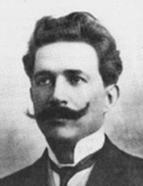

In his analysis of Brazil, Bomfim’s starting point and principal source for understanding Portuguese colonisation is undoubtedly the work of Oliveira Martins (Matos, "Manoel Bomfim e Oliveira Martins...", 2015, p. 57). Following the perspective of the Lusitanian historian ( América Latina..., p. 88), Bomfim extols the heroic Portugal of the Age of Camões and the overseas expeditions while condemning the Bragança dynasty, particularly King João VI. He argues that the degeneration fostered by Bragantine colonisation resulted in the political and moral degradation of Brazil. The "parasitism" of the former metropolis not only led to the expropriation of wealth and labour but also profoundly influenced the social and psychological fabric of the people. It cultivated an absence of initiatives aimed at the common good and fostered "(...) the perversion of the moral sense, the disdain for free labour, hatred of government, distrust of authority, and the growth of aggressive instincts" ( América Latina... pp. 158-159). But that is not all. Bomfim argues that Brazil, whose independence had been proclaimed by a Portuguese prince, had inherited a conservatism from the Kingdom that perpetuated privilege, fostered a love of rhetoric, and relied on written formulas, decrees of salvation, and overly theoretical solutions.
While Bomfim aligns with Oliveira Martins in his analysis of Portuguese and colonial history, he decisively diverges on the theory of superior and inferior races. He rejects the prejudiced, pseudo-scientific ideas prevalent in Europe at the time, which linked mestiçagem (racial mixing) to supposed physical, intellectual, and moral inferiority. These notions were widely accepted and propagated by many Brazilian intellectuals of the era. In contrast, Bomfim champions mestiçagem , emphasising the significant contributions of Indigenous and African peoples to the formation of the Brazilian population. He offers a positive perspective on the effects of this ethnic and cultural blending, praising the Lusitanians’ capacity to assimilate other races—an idea later expanded by Gilberto Freyre (Matos, “Manoel Bomfim e Oliveira Martins…”, 2015, p. 50). At the conclusion of his diagnosis, the doctor and pedagogue prescribe a remedy for eliminating the "evils of origin" that plagued Brazil: the adoption of a national programme of popular education. This programme would not only provide formal instruction but also prepare the people for the exercise of citizenship, empowering them to bring about radical political change.
This work is financed by national funds through FCT - Foundation for Science and Technology, I.P, in the scope of the projects UIDB/04311/2020 and UIDP/04311/2020.
